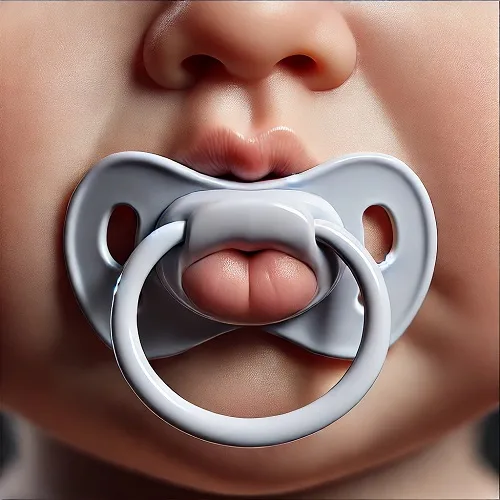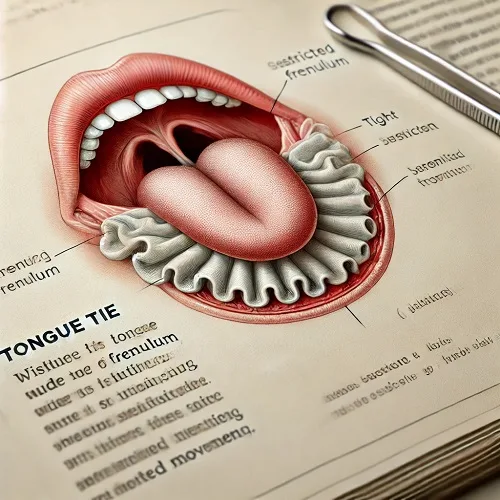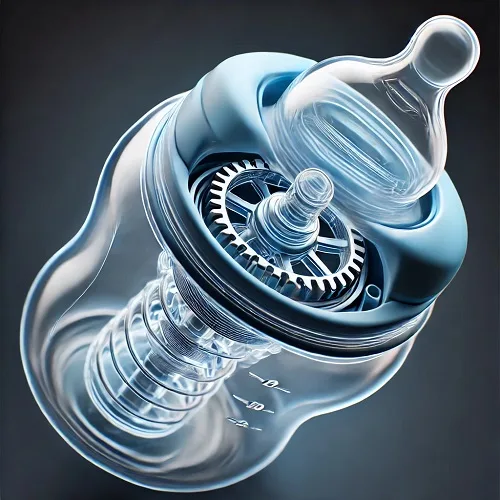Introduction
As a new parent, breastfeeding can sometimes present unexpected challenges, one of which is the clicking sound while breastfeeding. If you’ve heard your baby making a distinct clicking noise during nursing, you may have wondered what’s causing it and how to address it. Breastfeeding issues like these are more common than you might think, and understanding the root causes is essential for ensuring both you and your baby have a positive experience with breastfeeding.
The clicking sound while breastfeeding is often a sign that something is amiss during the nursing session, and it can be linked to various breastfeeding difficulties. While it might seem harmless at first, ignoring these noises can lead to discomfort, pain, or even poor milk intake. Recognizing and addressing these common breastfeeding problems early on can help ensure that breastfeeding is comfortable and effective for both you and your baby. By learning what causes the clicking sound and how to resolve it, you can support your baby’s feeding habits and maintain a healthy breastfeeding journey.
Table of Contents
What Is the Clicking Sound While Breastfeeding?

The clicking sound while breastfeeding is a distinct noise that some babies make when nursing. It typically occurs when the baby’s mouth momentarily loses suction while latched onto the breast. This interruption in suction causes a repetitive clicking or popping sound, which can be quite noticeable during a feeding session. While this sound may seem minor, it’s a signal that something might not be quite right with the baby’s latch.
The clicking noise is usually heard during the nursing sound as the baby sucks and swallows milk. It’s often caused by an improper latch, which can result in a lack of consistent suction. When the baby struggles to maintain a good latch, it can cause air to be trapped in the mouth, leading to these abnormal breastfeeding sounds. These noises can sometimes be mistaken for simple feeding noises, but they may also indicate that the baby is not feeding as efficiently as they should be.
This issue is actually quite common among breastfeeding babies, especially in the early stages of nursing when both the mother and baby are still getting accustomed to the process. Many new mothers experience breastfeeding noises that include clicks, pops, or smacking sounds, often due to an imperfect latch or other minor issues. While it’s not always a cause for alarm, the clicking sound while breastfeeding should not be ignored, as it can sometimes lead to discomfort for the mother and prevent the baby from getting enough milk.
By understanding the cause of the clicking sound, parents can begin to identify potential latch issues and address them to improve the breastfeeding experience for both the mother and baby.
Why Does the Clicking Sound Happen?

The clicking sound while breastfeeding occurs for a variety of reasons, all of which relate to how the baby is latching and feeding. While it may seem like a harmless noise, it often signals feeding difficulties that can impact the baby’s ability to nurse efficiently. Identifying the causes of the clicking sound is crucial for ensuring a comfortable and effective breastfeeding experience.
1. Latch Problems
One of the most common reasons for the clicking sound while breastfeeding is latch problems. A proper latch allows the baby to create a tight seal around the nipple, ensuring efficient milk transfer. However, an improper latch may cause the baby to lose suction repeatedly, resulting in a clicking or popping noise. Signs of a poor latch include nipple pain, baby frequently unlatching, and inadequate milk intake.
Solution:
- Ensure that the baby’s mouth covers both the nipple and a good portion of the areola.
- Try different breastfeeding positions to help the baby latch more deeply.
- Consult a lactation consultant if latching difficulties persist.
2. Tongue Tie
A tongue tie (ankyloglossia) is a condition where the tissue under the baby’s tongue is too tight or restrictive, preventing proper tongue movement. Since effective breastfeeding requires a full range of tongue motion, a restricted tongue can make it difficult for the baby to maintain a deep latch, leading to clicking sounds. Babies with tongue tie may also experience slow weight gain, excessive gas, and frustration during feeds.
Solution:
- A healthcare provider can assess if your baby has tongue tie and determine whether treatment, such as a frenotomy (a minor surgical procedure), is needed.
3. Air Intake During Nursing
Excessive air intake while breastfeeding can also contribute to feeding difficulties and cause the clicking sound. When a baby takes in too much air while nursing, it can lead to discomfort, spit-up, and colic symptoms.
Solution:
- Ensure a good latch to reduce air swallowing.
- Keep the baby in an upright position after feeds to minimize gas buildup.
- Burp the baby frequently during and after feedings.
By addressing these underlying causes, parents can work toward eliminating the clicking sound while breastfeeding and ensuring a smoother feeding experience.
Signs of an Incorrect Latch and How It Relates to the Clicking Sound

An incorrect latch is one of the primary reasons for the clicking sound while breastfeeding. When a baby doesn’t properly attach to the breast, it disrupts suction, leading to air gaps and that distinct clicking noise. A poor latch can not only make feeding inefficient but may also cause discomfort for both the baby and the mother.
How to Identify Latch Issues
If your baby has latch issues, you may notice:
- Frequent clicking sound while breastfeeding due to loss of suction.
- Nipple pain or soreness during and after nursing.
- Baby repeatedly unlatching and struggling to stay latched.
- A shallow latch where only the nipple is in the baby’s mouth instead of a deeper latch that includes the areola.
- Prolonged feedings with signs of frustration, fussiness, or inadequate milk intake.
How an Improper Latch Position Causes the Clicking Sound
An improper latch position prevents the baby from forming a strong seal on the breast. Instead of using their tongue and jaw efficiently, the baby tries to compensate by repositioning, which breaks suction and causes the clicking noise. If left unaddressed, an improper latch can lead to breastfeeding pain, poor milk transfer, and even reduced milk supply over time.
How to Improve the Latch
- Ensure a Deep Latch: Guide the baby to take both the nipple and a large portion of the areola into their mouth.
- Adjust Positioning: Try different nursing positions (cradle hold, football hold, side-lying) to find the most comfortable latch.
- Check Baby’s Mouth Position: The baby’s lips should be flanged outward, and their chin should touch the breast.
- Seek Professional Help: If pain persists, consult a lactation consultant to correct latch issues.
By addressing an improper latch position, parents can significantly reduce the clicking sound while breastfeeding, making the nursing experience more comfortable and effective.
How to Stop Baby Snack Feeding While Breastfeeding
Can I Take Creatine While Breastfeeding? Key Facts
Healthy Protein Balls for Breastfeeding Moms
Laser Hair Removal While Breastfeeding: Is It Safe or Risky?
Tongue Tie and Its Impact on Breastfeeding

One of the most common yet often overlooked causes of the clicking sound while breastfeeding is tongue tie. This condition, medically known as ankyloglossia, occurs when the tissue (frenulum) under the baby’s tongue is too short, thick, or tight, restricting tongue movement. Since a baby needs to extend their tongue to create a proper latch, a restricted tongue makes it difficult to maintain strong suction, leading to clicking noises during nursing.
How Tongue Tie Causes Clicking Sounds
When a baby with tongue tie tries to nurse, they struggle to keep their tongue in the correct position. Instead of smoothly drawing in milk, they repeatedly break suction, causing the clicking sound while breastfeeding. This inefficient sucking can lead to frustration, prolonged feeding times, and difficulty breastfeeding for both the baby and the mother.
Signs and Symptoms of Tongue Tie
Parents should be aware of the following tongue tie symptoms that may accompany the clicking sound:
- Shallow latch resulting in poor milk transfer.
- Frequent unlatching and frustration while nursing.
- Nipple pain or damage due to improper sucking technique.
- Baby appearing to “chew” on the nipple instead of sucking effectively.
- Poor weight gain or needing to feed very frequently.
- Baby unable to stick their tongue out past their lower gum.
How Tongue Tie Affects Breastfeeding
The connection between breastfeeding and tongue tie is significant. Babies with tongue tie may not be able to extract enough milk, leading to low milk intake, excessive gas, and fussiness. Mothers, on the other hand, may experience painful, cracked nipples, engorgement, or even a decrease in milk supply due to inefficient drainage.
Getting a Diagnosis and Treatment
If you suspect tongue tie, consult a pediatrician or lactation consultant. They can assess the baby’s tongue mobility and confirm the diagnosis. In many cases, a minor procedure called a frenotomy can be performed to release the tight tissue. This simple procedure can significantly improve breastfeeding and tongue tie complications, allowing the baby to latch properly and eliminating the clicking sound while breastfeeding.
Addressing tongue tie symptoms early ensures a smoother nursing journey, helping both the baby and mother experience a more comfortable and effective breastfeeding relationship.
Air Intake and the Clicking Sound

One of the lesser-known causes of the clicking sound while breastfeeding is air intake during nursing. When a baby takes in air while breastfeeding, it disrupts the suction process, resulting in a popping or clicking sound. This air often enters the baby’s mouth while they struggle to latch properly, leading to gaps where air can be swallowed. The clicking sound while breastfeeding is a clear indicator that air is being trapped, which may cause discomfort for both the baby and the mother.
Consequences of Swallowing Air
When a baby is swallowing air during breastfeeding, it can lead to several uncomfortable side effects. The most common consequence is baby’s gas problems, which can cause bloating, gassiness, and excessive crying. Swallowed air can also contribute to air bubbles during breastfeeding, making the baby feel full or uncomfortable, even though they haven’t consumed enough milk. This can lead to longer feedings, fussiness, and disrupted sleep. In the long run, it may also cause a decrease in milk intake, as the baby struggles to feed effectively.
How Air Intake Causes the Clicking Sound
The clicking sound while breastfeeding occurs when the baby’s latch isn’t perfect, and air enters the baby’s mouth while they’re sucking. This can happen if the baby is not latched deeply enough, or if their positioning is not optimal, causing them to lose suction momentarily. The result is a repetitive clicking sound, indicating that the baby is not effectively sealing the nipple in their mouth. This issue can be further aggravated if the baby is not comfortable or relaxed while nursing, as tension can cause them to suck in air along with milk.
Tips to Reduce Air Intake During Breastfeeding
To reduce air intake during nursing and prevent the clicking sound while breastfeeding, here are a few tips:
- Ensure a Deep Latch: Make sure the baby’s mouth covers both the nipple and a good portion of the areola.
- Check Positioning: Try holding the baby in an upright position to minimize the chances of air intake.
- Take Breaks During Feeding: Burp the baby every few minutes to release any swallowed air.
- Stay Calm and Relaxed: Stress and tension can make both mother and baby tense, which may increase the likelihood of air intake.
By addressing air intake and improving latch techniques, you can minimize the clicking sound while breastfeeding, leading to a more comfortable feeding experience for both you and your baby.
How to Fix the Clicking Sound While Breastfeeding

If you’re experiencing the clicking sound while breastfeeding, there’s no need to worry – this is a common issue that can usually be fixed with a few adjustments to your breastfeeding technique. The key to resolving the clicking noise lies in fixing breastfeeding issues, particularly addressing the latch, baby’s posture, and air intake during feeding. Below are actionable steps to help you improve the situation and ensure a more comfortable and efficient feeding experience for both you and your baby.
1. Improve the Latch
A proper latch is crucial to preventing the clicking sound while breastfeeding. When the latch is shallow, the baby might struggle to maintain suction, resulting in a clicking or popping sound. Here’s how you can improve the latch:
- Ensure the baby’s mouth is wide open before bringing them to your breast. Aim for a “rooting” reflex where the baby opens their mouth wide, similar to a yawn.
- Position the baby so their lips are flanged outward around the areola, not just the nipple. The entire nipple and a large portion of the areola should be in the baby’s mouth.
- Make sure the baby’s chin is touching the breast, and their nose should be free so they can breathe easily.
2. Adjust Baby’s Posture
Sometimes, the clicking sound while breastfeeding is caused by the baby’s positioning. A poor position can prevent them from getting a deep latch and can lead to air intake. Here are a few tips to correct baby’s posture:
- Use different breastfeeding positions, such as the cradle hold, football hold, or side-lying position, to find the one that helps the baby latch more deeply.
- Keep the baby’s head aligned with their body, ensuring their mouth is in direct alignment with the nipple to avoid awkward angles.
- Support the baby’s back and neck to help them maintain a stable and relaxed position during nursing.
3. Prevent Air Swallowing
One of the common reasons for the clicking sound is air swallowing. To minimize this, try the following:
- Burp your baby frequently during feedings. This will help release any air trapped in their stomach that could lead to discomfort.
- Hold your baby upright after feeding for a few minutes to allow any trapped air to rise and escape.
- Ensure a deep latch to reduce the likelihood of air gaps that cause the baby to swallow air.
4. Seek Professional Help if Necessary
If the clicking sound persists despite these adjustments, it might be a sign of an underlying issue such as tongue tie or other anatomical challenges. In this case, it’s important to consult a lactation consultant or pediatrician who can assess and provide targeted solutions for solving latch problems and improving breastfeeding techniques.
By following these steps, you can significantly reduce or eliminate the clicking sound while breastfeeding, creating a more comfortable and effective feeding experience for both you and your baby.
When to Seek Help

If you’re hearing the clicking sound while breastfeeding and it persists despite making adjustments, it might be time to seek professional help. While minor latch issues can often be resolved with simple fixes, more complex problems, such as tongue tie or significant breastfeeding difficulties, may require expert intervention.
A lactation consultant is a professional trained to assess breastfeeding issues and provide personalized guidance. If you notice that the clicking sound continues, or if you’re experiencing nipple pain, low milk supply, or your baby isn’t gaining weight, it’s time to consult a lactation consultant. They can help you with everything from improving latch techniques to identifying potential problems such as air intake or tongue tie.
In some cases, it may be necessary to consult a pediatrician, particularly if there’s a suspicion of a medical condition such as tongue tie or other anatomical issues that affect breastfeeding. A pediatrician can diagnose and recommend treatments to address the root cause of the problem.
Seeking help from a breastfeeding professional is a positive step toward ensuring a healthy breastfeeding experience. There’s no shame in needing support—on the contrary, it’s an important step for both your and your baby’s well-being.
Frequently Asked Questions (FAQ)
Is the clicking sound while breastfeeding normal?
The clicking sound while breastfeeding is not necessarily normal, but it is common. It often indicates an issue with the baby’s latch, air intake, or tongue tie. While some clicking noises may be harmless, persistent clicking should be addressed to ensure effective feeding and prevent discomfort.
How do I stop the clicking sound when breastfeeding?
To reduce the clicking sound, focus on improving your baby’s latch, adjusting breastfeeding positions, and ensuring they are not swallowing air. If the issue persists, consult a lactation consultant for further guidance.
Can tongue tie cause a clicking sound during breastfeeding?
Yes, tongue tie is a common cause of breastfeeding challenges that lead to clicking sounds. A baby with tongue tie may struggle to maintain suction, resulting in frequent unlatching and inefficient feeding. If you suspect tongue tie, consult a pediatrician or lactation specialist.
Should I worry if my baby makes a clicking sound while nursing?
If your baby is gaining weight well and seems content, occasional clicking may not be a major concern. However, if you notice signs of breastfeeding difficulties, such as poor latch, fussiness, or slow weight gain, seek professional breastfeeding support.
Conclusion
The clicking sound while breastfeeding is often a sign that your baby is having difficulty maintaining a proper latch. Common causes include latch issues, tongue tie, and air intake, all of which can impact feeding efficiency and comfort. Fortunately, there are simple breastfeeding solutions, such as improving latch techniques, adjusting feeding positions, and seeking professional help when needed. If the clicking sound persists despite making adjustments, consulting a lactation consultant or pediatrician can provide valuable insights and targeted interventions. Remember, every breastfeeding journey is unique, and overcoming these minor challenges will lead to a healthier breastfeeding experience for both you and your baby. Stay patient, trust your instincts, and seek support when needed.






